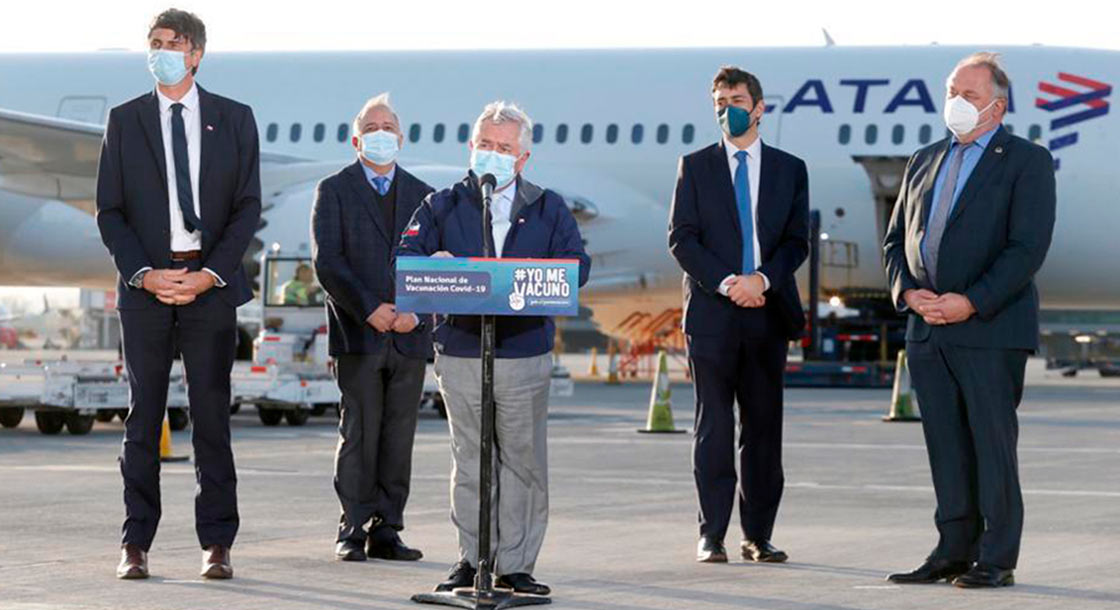The Chinese-Canadian vaccine requires only one dose and is the fourth one approved by the ISP for its use in Chile, where the clinical trials were led by the Universidad de La Frontera
Chile received the first 300 thousand doses of the Chinese-Canadian vaccine CanSino in the presence of the Minister of Health, Enrique Paris; the Minister of Science, Technology, Knowledge and Innovation, Andrés Couve; the Rector of the Universidad de La Frontera (UFRO), Dr. Eduardo Hebel, and the UFRO researcher Dr. Fernando Lanas, who was part of the team that led the clinical trials for this vaccine in Chile.
CanSino is the fourth vaccine approved by the Institute for Public Health (ISP) in Chile. It requires only one dose and the Health Minister pointed out that it will be used mainly in remote areas. These 300,000 doses are the first batch of 1,800,000 doses that will arrive in Chile.
“Today is a great day for Chile,” Dr. Eduardo Hebel, the Rector of UFRO, said, adding that the Universidad de La Frontera has joined the efforts made by scientists around the world. “Today, we can proudly see that the study we were leading at a regional university, in alliance with three other Chilean universities, brought concrete and significant results for the Chilean population, since we received the first doses of this vaccine, being able to distribute them all over the country. We were able to make an important contribution as a regional university, making visible our capacities, thanks to the collaborative work within the national and international scientific community.”
Dr. Fernando Lanas, a researcher of the Faculty of Medicine who was part of the team that led the clinical trials for this vaccine in Chile, thanked the authorities for the trust they have placed in the university to lead and coordinate the work, as well as the 3,500 volunteers who participated in the trials and contributed to the knowledge and health of the people around the world.
The UFRO researcher explained that this vaccine uses an inactive human adenovirus, which carries the “S” protein of the coronavirus on its surface. He also highlighted that the interim studies indicated an effectiveness of 65.7% to prevent symptomatic cases and 90.98% to prevent severe cases. “When we received the invitation to coordinate this study, we knew that Chile had already purchased a substantial amount of vaccines, so we started the trial thinking that they might not be used. Today, we are very happy to see the arrival of these first doses.”
The Vice-Rector for Research and Graduate Studies at UFRO, Dr. Pamela Serón, emphasized that this has been a huge effort by the researchers from UFRO, the universities Universidad San Sebastián and Universidad Austral de Chile, different Health Centers, the Scientific Committee on Vaccines and the Saval Laboratories. “We are very proud and satisfied, since we were able to fulfill such a fundamental task of a university, which is the promotion, coordination and research that leads to an impact on the well-being of the society,” she concluded.
Written by: Karimme Riadi Millas
Vice-Rectorate for Research and Graduate Studies, UFRO


